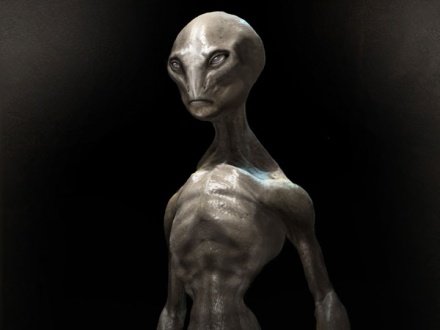Following the question of the end of the universe is the question of the end of the universe. Opinions vary on whether we can expect the universe to ever expire. There are several possibilities. One is that the universe will continue to expand, and eventually become so spread out that all matter and energy is just a homogeneous cloud of thin, lukewarm dust. Another is that gravity will eventually catch up with all the matter, and the universe will slow down and fall back into a single point, which may spark another big bang. Yet another theory notes that baryons and protons, the building blocks of matter, don’t seem to be being created naturally anymore, and if they decay (as some other particles do), the universe will simply fade out as all the particles just cease to be. In general, nothing untoward is expected to happen to the universe for many billion years, which will probably be a relief to those with long-range investments.
5 Dark Matter / Dark Energy
Current models of the universe, and observations made by high-tech instruments, point to there being an enormous amount of matter in the universe beyond what we can actually see. In fact, we can only seem to perceive about 4% of the stuff in the universe directly. The rest is invisible, or “dark matter,” a term that just means that we have no idea what it is. Accompanying this dark matter is some type of energy that, like dark matter, we can’t perceive directly. We call this, in a moment of inspiration, “dark energy.” Apparently, there’s even more of this than there is dark matter.
6 The Beginning of the Universe
How did the universe begin? Did the universe ever begin? If the universe includes everything that we know, including time, could there possibly even be a “before” before the beginning of the universe. Current theories generally talk about a “Big Bang,” which is a massive expansion of all matter and energy from a single point, which is still continuing through the present day. What started the bang? Where did all the energy and matter come from? Are these questions even meaningful? What about creationism, if that is for you? If God created the universe and all the physical laws in it, what is he doing now that it is running itself?
7 Time
You think you know what time is? Okay, try defining it without using any terms that rely on time. Time is… well, it’s time. It’s what keeps every event from happening simultaneously, and it’s what distinguishes something that happened in the past from something that will happen in the future. Is it a dimension, like space? Is it a quality of matter? Is it merely an illusion , possibly created to boost sales of digital watches? The smartest guys in the world get headaches from this one.
8 Consciousness
What is the mind? Behaviorists say that it is just conditioned responses. But it’s hard to deny that our ability to reflect on our own thoughts is something distinct and interesting. Is it a mere side-effect of the way our brains work? If so, how long will it be before a computer becomes self-aware and asks for equal rights? How can you tell true consciousness from something designed to simulate it? Can consciousness survive the death of the brain that carries it? There are a lot of questions, but until we can have an equal conversation with either a robot or a ghost, there really won’t be any answers.
9 Extraterrestrial Intelligence
This is really a simple mystery. Is there other intelligent life out there in the universe? Carl Sagan reminds us that if we exist, then, no matter how rare intelligence is in the universe, given how huge the universe is, we must have many neighbors out there somewhere. Frank Drake, an astrophysicist, created an equation that helps figure out how much intelligent life there is in the universe, and estimated that if only one in a billion planets has intelligent life, then there must still be over 6 billion planets with intelligence on them. Enrico Fermi, however, pointed out that if life is that common, then it is virtually impossible that we haven’t yet detected any signs of other intelligent life in the universe. So, the real mystery is this: what is it about Earth that makes no one want to play with us?
10 The Tunguska Explosion
On the 30th of June, 1908 (or the 17th, at the time; the calendar has been revamped since then), at 7:17 am (local time), something exploded over a region of forest in the Tunguska River Valley in Siberia, Russia. Locals many miles away saw something bright blue streak toward the area and explode with incredible force, sufficient to register on instruments in England. Later examination of the site showed that trees had been knocked down in a radial pattern from a central point, indicating an air burst of some kind. To this day, scientists aren’t sure what it was, and generally figure that it was a meteor or fragment of a comet Why did it explode in the air? Why haven’t we found any pieces? The mystery has kept UFO aficionados up at nights since then.






























0 comments:
Post a Comment